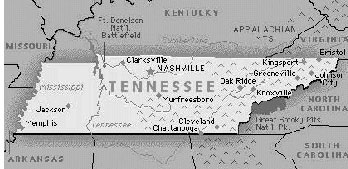 |
 |
| The self-satisfied Niagara Falls residents
contemplating the great deal
that NYPA offered in exchange for
another 50 years of control of local
power |
 |
| Map of Tennessee |
|
|
|
|
|
Some things don’t add up.
For instance, there is no cheap electrical power in Niagara Falls!
That’s funny, too, because this is where power is generated.
Search around the globe, and you won’t find another instance of this: A place where they generate billions of dollars worth of electricity and the local people don’t get cheap electricity.
The madness of it was hammered home a few years ago when Wacker Chemie AG, a German company, with plans to hire 1000 people in Niagara Falls - changed plans because – expecting –naively perhaps – that they could get low-cost power -- found there was nothing cheap about power in Niagara Falls.
Why doesn’t this add up?
1. Niagara Falls was once “The Power City” because it was the world’s first and greatest generator of hydro- electric energy. The Niagara generates more than $1/2 billion worth of electrical energy per year. It’s one of our great natural assets.
2. From 1895 to 1957 that power was controlled locally and, perhaps, not coincidentally, our region prospered.
3. In 1957, Albany took control of the hydro-power generated from the Niagara River through the New York Power Authority (NYPA).
4. Although NYPA was created to deliver “low - cost electricity” we pay among the highest rates in the USA.
5. Under Albany/NYPA control, the people here get neither low-cost power, nor even the use of electricity generated by the Niagara. The board of NYPA, appointed by Albany politicians, has made it an absolute (and obscene) fact that NYPA sells our Niagara hydro-electricity to New York City, and seven other states at low –cost while people here get high-cost electricity from National Grid (formerly Niagara Mohawk) which generates its electricity by burning coal and other methods.
6. A region has to benefit by its natural assets -- as it must compensate for natural disadvantages. For 57 years, we have not benefited from locally - generated hydro-electricity. But Tennessee, for instance, gets our Niagara hydro-power, paying less for electricity than we do. Thanks, in part, to cheap electricity, Tennessee is booming. Meanwhile, we pay for our disadvantages: NY is colder than Tennessee and, consequently, we burn more natural gas to heat our homes. If we weren’t fools, we would know that to help compensate for high heating bills, we should have low - cost electricity. Instead, Tennessee gets our low-cost electricity, and, because it’s warmer there, also pays less for heat. Tennesseans call that a “two-for-one.”
7. Unfortunately, the 50 year license granted to NYPA in 1957 to control our Niagara hydro-power expired in 2007.
8. NYPA wanted to renew its license for another 50 years -- in exchange for an alleged “one billion” dollars. At first blush it sounded fantastic. However, the potential value of electricity generated over 50 years by the Niagara River, factored for inflation, is estimated to be in the hundreds of billions - possibly half a trillion. NYPA offered our local communities a few million per year in cash – with no increases for inflation - and selling a comparatively minute amount of power (less than 1% of Niagara’s hydro – power) to certain municipalities at low cost. This tiny fraction of Niagara power – when resold at retail prices, and generously factored for inflation - added to the cash NYPA will pay - over 50 years - adds up to the widely advertised, but grossly misleading, “one billion dollar” figure.
9. NYPA’s “one-billion offer,” is the grand total for the entire 50 years. What will our region pay for electricity in 50 years - when factored for inflation? Hundreds of billions? Half a trillion?
10. So why did local leaders buy into such a deal? The seductive nature of NYPA’s offer was that it gave a few million immediately toward the cash-starved budgets of local municipalities - to be controlled by local officials – for various, politically-favored projects.
11. The ratio and the absurdity of what NYPA offered is approximately: If I made $1000 per week by controlling one of your essential assets, and I paid you a dollar a week in compensation. Meanwhile, you had to rent a similar and essential asset for the high-cost of $50 per week – and you were too stupid (or apathetic) to realize you were being duped.
NYPA should be condemned – literally.
Locally exercised “eminent domain” (or condemnation) of NYPA’s power plants for the public good might be the best, reasonable method to take our power back. For, after all, every region - like every person - has the right to prosper from their natural assets.
Just ask the good people in Tennessee.


